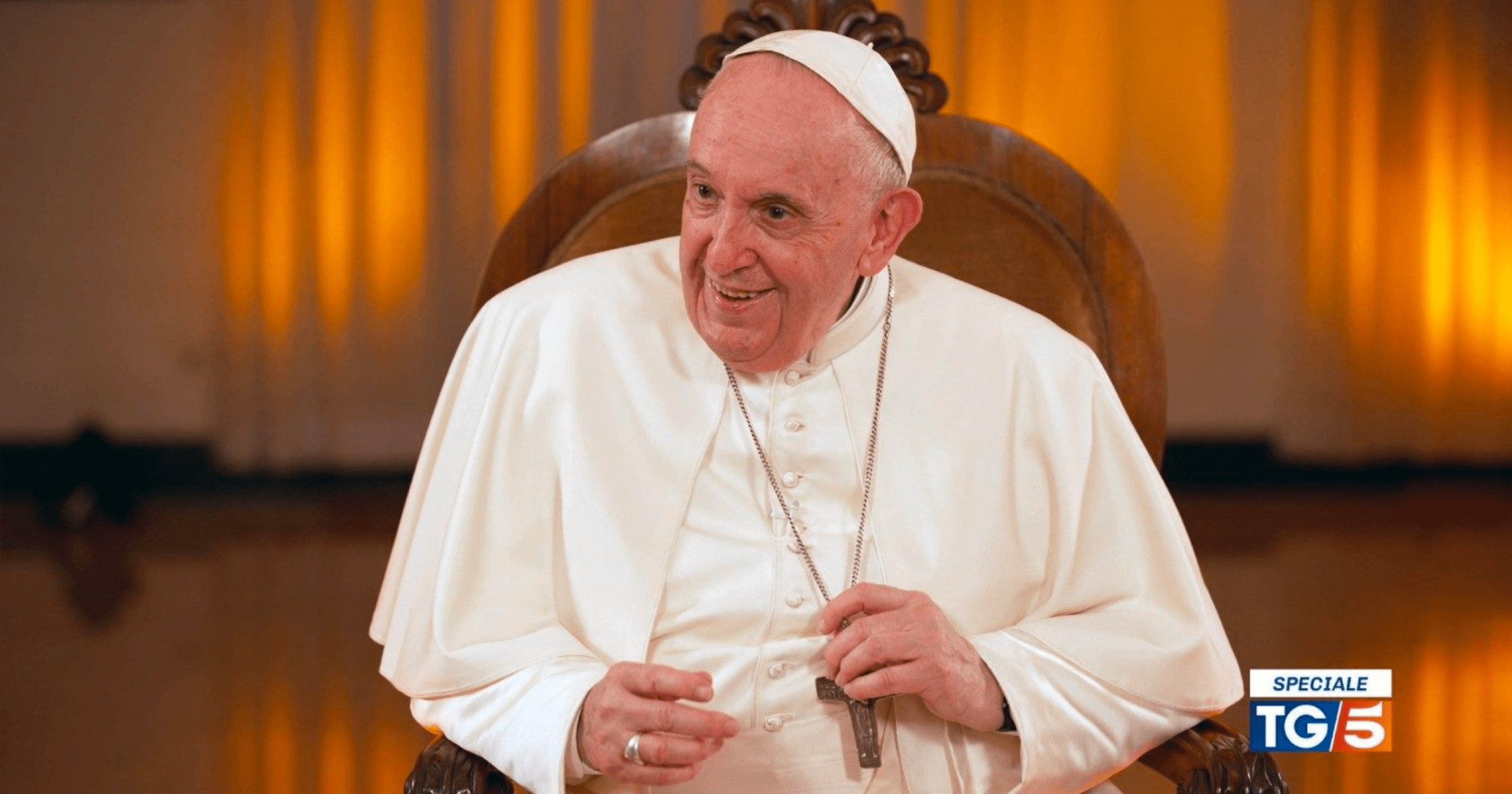On Sunday evening, Pope Francis sat down at his Casa Santa Marta residence for a TV interview called “Pope Francis and the Invisible People.”
The encounter included Giovanna, a mother who lost her job, home, and struggles with violence in her family; Maria, a homeless woman, Maristella, an 18 year old scout whose joy has been lost due to the pandemic; and, Pierdonato, who served 25 years in prison.
Giovanna asked Pope Francis how she can regain her dignity given the domestic violence she has suffered at the hands of her husband. He replied:
“It is so, so large the number of women beaten, abused in the home, even by their husband. The problem is that for me it’s almost satanic, because it’s taking advantage of the weakness of someone who cannot defend themselves. Violence and abuse at home such as this is humiliating, very humiliating. It is humiliating when a father or a mother slaps a child in the face, it is very humiliating. I always say, never slap a child in the face. How come? Because dignity is reflected in the face. This is the word that I would like to focus on because behind it is your question: does dignity remain in me? What is my dignity after all this, what is the dignity of beaten and abused women? An image comes to my mind as I enter the Basilica on the right, the Blessed Mother’s piety, Our Lady humiliated in front of her naked son, crucified, seen as a wrongdoer in the eyes of all. This total humiliation witnessed by the mother who raised him. But she did not lose her dignity and looking at this image in difficult moments like your own of humiliation and where you feel you are losing your dignity, looking at that image will give strength…. Look at the Blessed Mother and stay with that image of courage.”
Maria asked Pope Francis why society is so cruel to the poor. He replied:
“You speak of cruelty, and this is society’s hardest slap in the face for you, when someone else’s problem is ignored… We are entering a culture of indifference where we try to distance ourselves from the real problems, the suffering caused by homelessness, the lack of jobs. On the contrary, the problems have increased with this pandemic because those who offer money on loan are knocking at the door: usurers. A poor person, a person in need, falls into the hands of usurers and loses everything, because they do not forgive. This is cruelty on top of cruelty, I say this to draw people’s attention not to be naive; usury is not a way out of the problem, usury brings you new problems. When you are suffering, you understand the depth of someone’s pain. Always try to look right into the face of these problems because there will be someone else who is worse off than you who needs your gaze, which will help them go forward.”
Pierdonato asked Pope Francis if there is hope for those who desire to change. He replied:
“Hope never disappoints.There is an opera that I like very much, but it says the opposite: in Turandot, on the subject of hope, it says that hope always disappoints. Instead, I say to you: hope never disappoints. God is there, not up in orbit, but right next to you, because God’s way is closeness, compassion and tenderness… God is with each one of those in prison, with any person who goes through difficulty…. You may not say it, but you know in your heart that you are forgiven and you have the hope that does not disappoint… That’s why I can tell you one thing: God always forgives, God always forgives…. Our strength is in the hope of this close, compassionate, and tender God, tender as a mother. He says this himself, and that’s why you have that hope.”
Maristella talked about isolation during the pandemic has weighed on the youth, and asked how to create healthy relationships. He replied:
“In the lockdown you missed contact with your friends, with your family because you couldn’t go out and maybe school was closed. We need this contact, face-to-face contact, but there can be a temptation to isolate ourselves in other ways, for example, getting in touch by cellphone only, cellphone friendships, with a lack of concrete dialogue. You have learned from this situation that concrete dialogue cannot be made up for with online dialogue, and that there is more to it than that. If you want to use the phone, use it, but may this not eliminate contact with people, direct contact, contact of going together to school, going for a walk, going together to have coffee, real contact and not virtual. If we do away with real contact, we will also end up ‘liquid or gaseous’, without any consistency, always online and the online person lacks tenderness.”
Pope Francis ended the interview appealing to views to keep Christmas focused on Jesus.
“What do you think about Christmas? That I must go out and buy this, that, and the other…. Okay, but what is Christmas? Is it a tree? A statue of a baby with a woman and a man next to it? Yes, it’s Jesus, it’s the birth of Jesus, stop for a moment and think of Christmas as a message of peace. I wish you a Christmas with Jesus, a real Christmas. Does this mean we can’t eat? That we can’t have a celebration? No, have a celebration, eat everything, but do it with Jesus, that is, with peace in your heart. And to all of you who are listening to me, I wish you a Merry Christmas. Celebrate, give gifts, but don’t forget Jesus. Christmas is Jesus who comes, Jesus who comes to touch your heart, Jesus who comes to touch your family, who comes to you, to your home, to your heart, to your life. It is easy to live with Jesus, he is very respectful, but don’t forget that. I wish everyone a blessed and holy Christmas. And please pray for me!”

















